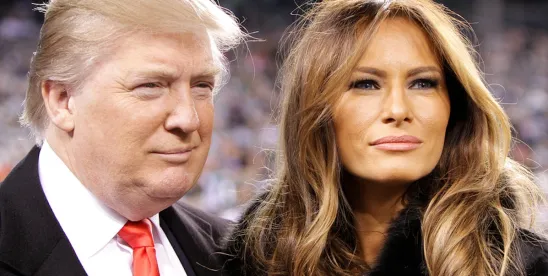During his 2024 presidential campaign, President-elect Donald Trump promised to impose a variety of new tariffs, even without congressional approval, including a 25%-75% tariff rate on Mexican imports, a 60% tariff rate on Chinese imports, and a broad 10%-20% tariff rate on all imports, regardless of country of origin. More recently, President-elect Trump announced he may seek to immediately apply a 25% tariff on Canada and Mexico for complicity in the U.S. border crisis related to illegal immigration, and a 10% tariff on China in response to the fentanyl crisis. But can a president really levy such tariffs without congressional consent? As discussed below, in many cases the answer is yes.
Delegation of Congressional Authority
The U.S. Constitution gives Congress the power to set tariffs. Article I, Section 8 of the Constitution states that Congress has the power to “lay and collect Taxes, Duties, Imposts and Excises,” and to regulate commerce with foreign countries. For most of the country’s history, Congress set tariff rates through legislative revisions to the U.S. tariff schedule. However, beginning in the 1930s, Congress began delegating considerable portions of its tariff authority to the president, subject to certain conditions and restrictions.
Key Statutes Purportedly Giving the President Authority to Impose Across-the-Board Tariffs
There are many different statutes under which the president can impose tariffs. The following statutes are the most cited sources of authority for a president authority to impose across-the-board tariffs on all imports coming into the U.S.
International Emergency Economic Powers Act of 1977[1] (IEEPA). IEEPA empowers the president to address any “unusual and extraordinary” external threats to the national security, foreign policy, or economy of the U.S. upon declaration of a national emergency under the National Emergencies Act[2] (NEA). On making such a declaration, the president may impose sanctions, freeze assets, and prohibit or regulate the importation of any property in which a foreign country or foreign national has any interest.
Presidents commonly use IEEPA to impose export controls, embargoes, and sanctions on countries, and individuals, as well as to block imports from designated countries and acquisitions made by designated foreign nationals. Neither IEEPA nor NEA define an “unusual and extraordinary threat” to U.S. “national security, foreign policy, or economy” or a “national emergency,” leaving the president wide discretion to both define the national emergency and design actions necessary to address circumstances giving rise to the national emergency.
To date, no president has imposed tariffs invoking the authority of IEEPA. In 2019, then-President Trump threatened to invoke IEEPA to impose tariffs on Mexican imports to deal with illegal border crossings. The threat was later rescinded when the Mexican government pledged to cooperate to stem illegal border crossings.
During 1971, however, in an analogous situation involving the Trading with the Enemy Act of 1917[3] (TWEA), President Nixon declared a state of emergency to avoid a balance of payments crisis resulting from ending the U.S. dollar’s gold standard. He declared a national emergency to justify imposing a 10% additional tariff on all imports entering the U.S. Although President Nixon’s declaration of a national emergency was criticized and contested in court, a federal appeals court upheld his imposition of a surcharge on imported goods as a lawful exercise of the president’s power to regulate imports under the TWEA.[4]
TWEA provides a president certain power to address national emergencies during times of war. In 1977 TWEA was amended with the enactment of IEEPA, and IEEPA was intended to extend to provide the president similar power to respond to emergencies in peacetime. The two statutes differ in one important respect: Under IEEPA, the president’s declaration of a national emergency must constitute an “unusual and extraordinary threat” to U.S. “national security, foreign policy, or economy,” while TWEA does not have such a requirement for a president to act. This additional IEEPA condition may provide a basis to challenge the legality of a president’s ability to impose tariffs on all imports. However, this legal challenge would first need to overcome the federal judiciary’s reticence to review “political questions,” as courts remain reluctant to second-guess the legal adequacy of a president’s declaration of a national emergency.
Upon declaration of an IEEPA national emergency, the president does not need congressional approval to act. Rather, IEEPA requires the president to regularly consult Congress and submit periodic reports explaining the necessity, while Congress retains authority to terminate the declared national emergency by passing a joint resolution. The president, however, can still veto the joint resolution, which Congress must then override in order to terminate the national emergency.
Section 122 of the Trade Act of 1974.[5] Section 122 authorizes the president to impose unilaterally across-the-board tariffs without congressional approval of up to 15% on all imports to mitigate a serious balance-of-payments deficits. The tariff may last for a maximum period of 150 days, after which Congress must approve continuation of the tariff. Section 122, however, does not specify any time limitation on Congress, so Congress may extend the authorized tariff for any desired period. To date, no president has invoked Section 122 to impose such an across-the-board tariff. The lack of Section 122’s use for this purpose may arise in part due to the 150 day maximum period, as the action may not be worthwhile unless the president remains confident Congress will continue the tariff – more likely when both houses of Congress are the same party as the president.
Section 301 of the Trade Act of 1974.[6] Section 301 grants the U.S. Trade Representative (USTR) authority to investigate unfair foreign trade practices and remedy by imposing tariffs and other trade restrictions. Unfair foreign trade practices include unjustifiable or unreasonable acts, policies, or practices of a foreign country that burden U.S. commerce. The USTR may self-initiate a Section 301 investigation or open an investigation in response to a petition from an interested party. Once a policy or practice of a foreign country is found to be unreasonable or discriminatory and burdens U.S. commerce, then USTR may take “all appropriate and feasible action, subject to the specific direction of the president, to obtain the elimination of the act, policy, or practice.”
Notably, in 2018, a USTR investigation found that China engaged in unfair tactics to obtain U.S. technology and intellectual property to benefit Chinese companies. Then-President Trump imposed tariffs ranging from 7.5% to 25% on many Chinese imports (link to prior alert). Subsequently, President Biden continued the Section 301 tariffs, utilizing the findings to invoke even further tariffs by imposing 100% tariffs on Chinese electric vehicle imports into the U.S. and increase the tariff on lithium-ion EV batteries from 7.5% to 25% (link to prior alert).
Interestingly, Section 301 may permit the USTR to take action “against any goods or economic sector on a nondiscriminatory basis,” and Section 301 does not concretely require action target the specific country subject to the investigation. Thus, Section 301’s broad authority to take action on a “nondiscriminatory” basis may allow USTR to impose tariffs on the imports of many countries, even when those countries were not the direct focus of the investigation.
Section 338 of the Tariff Act of 1930.[7] Section 338 permits the president to issue a proclamation to impose new duties on countries that the president determines either (i) impose an “unreasonable charge, exaction, regulation, or limitation” which discriminates against U.S. products, or (ii) discriminate in fact against the commerce of the United States “directly or indirectly, by law or administrative regulation, or practice” to “disadvantage” U.S. commerce compared to commerce of any foreign country. Upon finding discrimination, the president may impose 50% ad valorem tariffs on the imported products from the discriminating countries.
Section 338 calls for the US International Trade Commission (USITC) to ascertain first whether foreign discrimination exists and to report it to the president. After receiving the USITC’s report and recommendation, then the president may impose the tariff. To date Section 338 has not been used to impose tariffs.
What About Trade Agreements and the USMCA?
Under the World Trade Organization (WTO) and other trade agreements, countries may raise tariffs above the negotiated “bound” rate only for specific and agreed-upon purposes and, most notably, when necessary for the protection of its “essential security interests.” Essential security interests must relate to one of the following categories: (1) the proliferation of fissionable materials, (2) arms trafficking, (3) actions taken in time of war or other emergency in international relations, or (4) “obligations under the United Nations Charter for the maintenance of international peace and security.” Since Section 338’s standards for discrimination against U.S. goods are not among the four categories of essential security interests, Section 338 tariff imposition would likely constitute a breach of U.S. commitments under the WTO and under other trade agreements. However, only member countries have standing to challenge the breach of a WTO agreement by another member country, and the slow WTO dispute settlement system resolves such challenges.
The United States-Mexico-Canada Agreement (USMCA), however, is different. Previously under NAFTA, a party retained authority to impose supplemental tariffs on imports of other NAFTA parties for the same four categories of “essential security interests” described in the WTO. Now in contrast, USMCA modifies “essential security interests” by deleting all references to the four categories of essential security interests enumerated under NAFTA. Instead USMCA allows a party to take “measures that it considers necessary for the … protection of its own essential security interests” under Article 32.2. This contrast makes room for the president to make the declaration that illegal immigration constitutes an “essential security interest” and lessens the potential the U.S. may be challenged for breach of the USMCA.
What Importing Companies Should Consider Doing
President-elect Trump’s threats to impose additional tariffs on imported goods are obviously intended, among other things, to prompt U.S. companies to produce more in the U.S. and to reassess global supply chains. With the potential risks, many companies are contacting their lawyers to begin preparing for the possibility of applying for exclusions from the supplemental tariffs. In 2018, when then-President Trump imposed duties on Chinese imports, the USTR created a process whereby interested parties could request that a particular product be excluded from the tariffs, subject to certain criteria. Thousands of such requests were filed and many were initially granted and subsequently extended (link to prior alert).
Many expect President-elect Trump’s Administration may similarly establish a process for U.S. companies to apply for tariff exclusions regardless of the specific program authority. If enacted, an exclusion process may be administered by the USTR or another agency, through an online portal allowing applicants to identify products with detail, provide reasoning for the exclusion, and submit the request through the online portal. The exclusion process may mirror the original program administered by the then-President Trump administration for the Section 301 tariffs. In any case, U.S. companies should begin to consider the impact of additional tariffs and applicable mitigation techniques. Miller Canfield’s trade lawyers can assist.
[1] 50 U.S.C. § 1701.
[2] 50 U.S.C. §§ 1601-165.
[3] 50 U.S.C. §§ 1701–1710.
[4] See United States v. Yoshida Int’l, Inc., 526 F.2d 560 (C.C.P.A. 1975).
[5] 19 U.S.C. § 2132.
[6] 19 U.S.C. § 2411.
[7] 19 U.S.C. § 1338.





 />i
/>i
